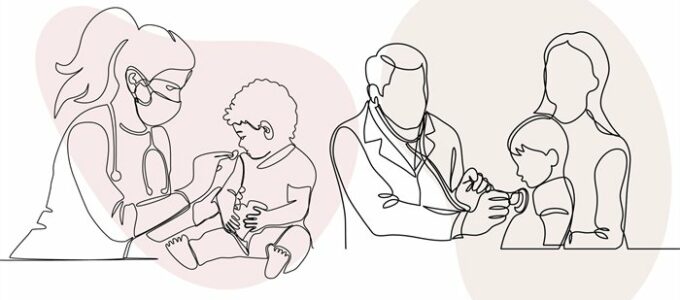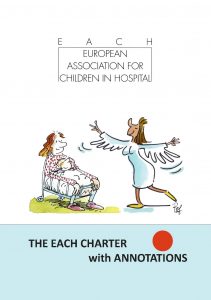
Holyrood has published an article written by Louise Wilson @louisewilso stating that children’s health must be urgently prioritised in Scotland. It opens with the fact that there are children in Scotland who have never seen a dentist. That’s not because they haven’t needed one, nor for lack of trying on the part of parents, but because of issues finding a practice taking on new patients.
The article was compiled with the help of Michelle Wilson, our Head of Children and Young People Services at Children’s Health Scotland. Within it she says:
We know that it’s quite a struggle at the moment to get a child signed up to be a patient with an NHS dentist. Last year I was working with a group of women who had babies during Covid, who had reached two, two and a half, even three, and they had never seen a dentist because they have not found a dentist to register with. And even among parents who have managed to find one, it may not be with the same practice as the rest of the family. That makes routine check-ups less likely. The most common reason for children to have their first general anaesthetic is to have multiple tooth extractions and that’s because at the other end we’re not able to have good dental care. We’re not meeting their rights for the best possible health for children, if they can’t access a dentist.
Unless the health of babies and young children is urgently prioritised, we condemn many to a life of poorer health and lost potential. The official statistics from the National Dental Inspection Programme speak for themselves. According to the latest figures following an inspection of P1 children in 2021/22, the proportion of five-year-olds with severe decay or abscess has increased to nearly one in ten. Worse still, severe health inequalities persist. While only 15 per cent of kids from the least deprived areas show signs of decay, that rises to over 40 per cent for those from the most deprived areas. And as pressures on dental services mount, the British Dental Association has warned this will result in the oral health gap widening.
Dental health is just one element of increasing concerns over children’s health. A major report from The Academy of Medical Sciences published in February warned “progress in child health in the UK has stalled”, with evidence of decline in some areas. That took in a range of indicators, including tooth extractions, obesity, vaccinations and breastfeeding rates.
The science is clear – we are betraying our children.
said co-chair Professor Helen Minnis – an expert in child and adolescent psychiatry at the University of Glasgow – on the report’s release.
Unless the health of babies and young children is urgently prioritised, we condemn many to a life of poorer health and lost potential.
The article goes on to highlight that paediatric services, like the rest of the NHS, are under severe pressure. A recently published Royal College of Paediatrics and Child Health (RCPCH) report shows that waiting times for children have more than doubled over the last 11 years. Despite the waiting times standard, as set out in Scottish legislation, saying 95 per cent of patients should be seen within 12 weeks, nearly half of children are now waiting longer than that. Dr Mairi Stark, Scotland officer for RCPCH, says:
Lengthy waits are unacceptable for any patient, but for children and young people the waits can be catastrophic, as many treatments need to be given by a specific age or developmental stage. It is not the same as for adults: if you miss the right window to treat a child or wait too long the consequences can be irreversible. What’s more, the shocking data in this report is just the very tip of the iceberg. We know that there are exceptionally long waits for other services children and young people access, such as surgical, mental health, and ear, nose, and throat services.
The report calls for a full review of the child health workforce, taking in all roles which feed into that from the paediatrician through to the school nurse. It also backed increasing community care services to help reduce demand on primary and acute care. Stark continues:
We need to give the child health workforce the support it needs to care for the children and young people of Scotland… Only by tackling long waiting times can we provide the appropriate, holistic care that children need.
These calls are echoed by BMA Scotland. Dr Andrew Buist, who chairs the organisation’s GP committee, says that while children are far healthier now than decades gone by, there are some concerns about the direction of travel and changes in support for families. The changing nature of the health visitor role is one example. The Scottish Government rolled out the Universal Health Visiting Pathway in 2015, setting out a minimum core programme to be provided by health boards to young families and placing it firmly within the wider Getting it Right for Every Child (Girfec) policy. But Buist says this seems to have had unintended negative impacts. He says:
They’re less available to everyone and their role has changed to focus more on high-risk children and children at risk of neglect. That’s a really important area too, but everybody needs access to health visitors with a focus on things like healthy living, healthy appetites, healthy food, exercise and these sort of things. That change in direction for health visitors has been something that is regrettable.
Michelle Wilson adds:
Although there was an acknowledgement, several years ago, when we decided that we were going to have joint integrated boards in Scotland – so we would have the health board, the local authority and the third sector all part of the strategic plan for children and families within those areas – I don’t think we’ve seen it working as a proper three-way partnership and that would make a huge difference if we did that. We could look at doing things holistically, where people don’t have to tell ten different professionals their story. There’s one place where they go, they can say what their issues and concerns are, and all of that support can be given. It can be given early, and any issues can be picked up early.
Poverty also continues to be a major concern – and not just because of those impossible heating versus eating choices that have become all too common for parents.
If we take that group of children and young people who are living in the worst areas of multiple deprivation, it’s a tougher landscape. There will be fewer GP surgeries in those areas. There will be fewer dentists in those areas. That in itself has an impact. Shops in those areas will be smaller shops, with higher value items in them, and it is easier to access things like energy drinks and single use vapes. Your access to good quality produce at reasonable prices is reduced if you live in those areas. And if you have several children and you have to get on a bus with a double buggy to get that fresh fruit and veg, that’s putting barriers in the way.
The article concludes with the fact that Michelle, for her part, is feeling positive – in part because of the imminent incorporation of the UN Convention on the Rights of Child into Scots law. That includes, among a raft of others, a right to the highest attainable standard of health. She says:
We see that as an absolute lynchpin in putting children front and centre, from birth to 18. If we can get it right between those ages of 0 and 18, then we’re going to have a huge impact on Scottish society. At the moment it is a bit of a mixed landscape and we do need to be a little bit more creative with what we’ve got to get the best possible health for children and young people. But we’ve got lots of really passionate people working in the public sector and in the third sector, and I think we could make it happen with just a little bit more support and guidance.
To read the full article CLICK HERE
